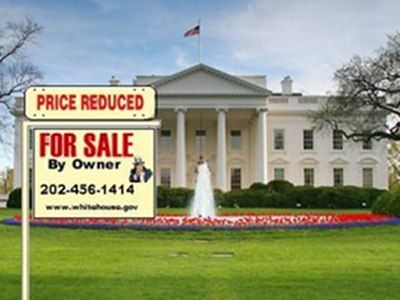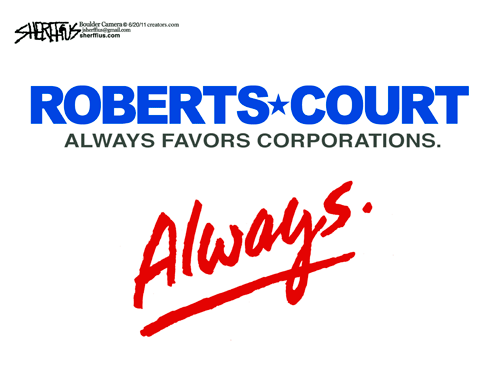Cross posted from The Stars Hollow Gazette
Who Buys the Spies? The Hidden Corporate Cash Behind America’s Out-of-Control National Surveillance State
by Thomas Ferguson, Paul Jorgensen, and Jie Chen
Democratic leaders are full-fledged players in the national surveillance state, right along with Republicans.
Long before President Obama kicked off his 2008 campaign, many Americans took it for granted that George W. Bush’s vast, sprawling national security apparatus needed to be reined in. For Democrats, many independents, and constitutional experts of various persuasions, Vice President Dick Cheney’s notorious doctrine of the “unitary executive” (which holds that the President controls the entire executive branch), was the ultimate statement of the imperial presidency. It was the royal road to easy (or no) warrants for wiretaps, sweeping assertions of the government’s right to classify information secret, and arbitrary presidential power. When Mitt Romney embraced the neoconservatives in the 2012 primaries, supporters of the President often cited the need to avoid a return to the bad old days of the Bush-Cheney-Rumsfeld National Security State as a compelling reason for favoring his reelection. Reelect President Obama, they argued, or Big Brother might be back.
But that’s not how this movie turned out: The 2012 election proved to be a post-modern thriller, in which the main characters everyone thought they knew abruptly turned into their opposites and the plot thickened just when you thought it was over.[..]
As the storm over surveillance broke, we were completing a statistical analysis of campaign contributions in 2012, using an entirely new dataset that we constructed from the raw material provided by the Federal Election Commission and the Internal Revenues Service (which compiles contributions from so-called “527”s). In light of what has transpired, our quantitative analysis of presidential election funding invites closer scrutiny, particularly of the finding that we had already settled upon as perhaps most important: In sharp contrast to endlessly repeated claims that big business was deeply suspicious of the President, our statistical results show that a large and powerful bloc of “industries of the future” – telecommunications, high tech, computers, and software – showed essentially equal or higher percentages of support for the President in 2012 than they did for Romney [..]
But the point that our findings document is perhaps most instructive of all. Many of the firms and industries at the heart of this Orwellian creation have strong ties to the Democrats. Bush and Cheney may have invented it, but national Democratic leaders are full-fledged players in this 21st century National Surveillance State and the interest group pressures that now help to sustain its defenders in Washington work just as powerfully on Democrats as on Republicans.
Party Competition and Industrial Structure in the 2012 Elections
Key Findings:
- Existing data sources used for studies of campaign finance have a variety of serious flaws.
- As a result, the degree to which major parties’ presidential candidates depend on very large donors has been underestimated and the role small donors play exaggerated.
- The relation between the money split between the parties and the proportion of votes received by their candidates in House and Senate races appears to be quite straightforward.
- Firms and executives in industries strongly affected by proposed regulations limiting greenhouse gas emissions heavily backed Mitt Romney. So did much, but not all, of finance.
- President Obama’s support within big business was broader than hitherto recognized. His level of support from firms in telecommunications and software was very strong indeed, sometimes equaling or exceeding Romney’s. Many firms and sectors most involved in the recent controversies over surveillance were among the President’s strongest supporters.
- Republican candidates showed sharply different levels of contributions from small donors; President Obama’s campaign, while heavily dependent on large donors, attracted more support from small donors than did his Republican opponent.
- Big business support for Tea Party candidates for Congress was substantial, but well below levels for more mainstream Republicans. Many of the same sectors that strongly supported Romney also backed Tea Party candidates. Backing for Tea Party candidates by Too Big To Fail banks ran above the average of business as a whole by every measure.
Read “Party Competition and Industrial Structure in the 2012 Elections: Who’s Really Driving the Taxi to the Dark Side?” (pdf), by Thomas Ferguson, Paul Jorgensen, and Jie Chen.
Professor of Political Science at the University of Massachusetts and a Senior Fellow of the Roosevelt Institute, Thomas Ferguson discusses the finding of the study with Real New Networks Jaisal Noor.
As Yves Smith at naked capitalism noted this is a good explanation why “Obama started looking more stressed than usual around the time of the Snowden revelations.”

 President Barack Obama’s campaign organization, “Obama for America” (OFA), is being reinvented as as a 501(c)(4) tax-exempt “social welfare group” that is not subject to federal contribution limits, laws that bar White House officials from soliciting contributions, or the stringent reporting requirements for campaigns. The goal is to raise $50 million support of Mr. Obama’s second-term policy priorities, including efforts to curb gun violence and climate change and overhaul immigration procedures. Much like the alleged “grassroots” organizations, The Tea Party and Freedom Works, the new organization, now known as “Organizing for Action” (still OFA, so as not to confuse Obama supports), will derive most of its budget from a select group of donors who will each contribute or raise $500,000 or more. Sounds harmless? But wait, there’s more, as
President Barack Obama’s campaign organization, “Obama for America” (OFA), is being reinvented as as a 501(c)(4) tax-exempt “social welfare group” that is not subject to federal contribution limits, laws that bar White House officials from soliciting contributions, or the stringent reporting requirements for campaigns. The goal is to raise $50 million support of Mr. Obama’s second-term policy priorities, including efforts to curb gun violence and climate change and overhaul immigration procedures. Much like the alleged “grassroots” organizations, The Tea Party and Freedom Works, the new organization, now known as “Organizing for Action” (still OFA, so as not to confuse Obama supports), will derive most of its budget from a select group of donors who will each contribute or raise $500,000 or more. Sounds harmless? But wait, there’s more, as  Once again the corporate owned, conservative Supreme Court has
Once again the corporate owned, conservative Supreme Court has